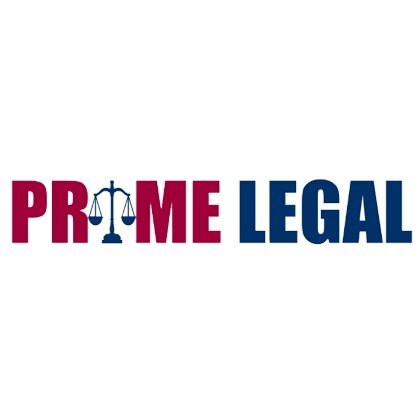Best Landlord & Tenant Lawyers in Nepal
Share your needs with us, get contacted by law firms.
Free. Takes 2 min.
Free Guide to Hiring a Real Estate Lawyer
Or refine your search by selecting a city:
List of the best lawyers in Nepal
About Landlord & Tenant Law in Nepal
Landlord and tenant law in Nepal is primarily governed by the Contract Act, 2056 (1999), along with other customary and statutory provisions. This area of law regulates the relationship between landlords and tenants, detailing their respective rights and duties. The laws are designed to ensure fair practice, protect tenants' rights, and provide landlords with a legal framework for leasing their properties. Generally, rental agreements include terms regarding rent, maintenance, duration of tenancy, and conditions for termination.
Why You May Need a Lawyer
There are several circumstances in which individuals may require legal assistance in landlord-tenant matters in Nepal:
- Drafting and Reviewing Lease Agreements: Lawyers can ensure that lease agreements are clear and legally binding, offering protection for both parties.
- Dispute Resolution: In cases of rent disputes, property damage, or evictions, legal advice might be necessary to mediate or resolve conflicts.
- Eviction Proceedings: Whether you're a landlord seeking eviction or a tenant challenging it, legal guidance is crucial for navigating this process.
- Compliance and Legal Advice: Both landlords and tenants need to stay updated on legal responsibilities and rights to avoid future legal problems.
- Lease Termination: Managing lease termination in accordance with the law can be complicated and may require legal support to ensure it's handled correctly.
Local Laws Overview
Nepal’s landlord and tenant laws encompass various legal aspects which are crucial for both parties:
- Rent Control: There are no strict rent control laws in Nepal, which means rent can generally be set by mutual agreement between landlord and tenant.
- Security Deposit: While not uniformly regulated, security deposits are typically required and should be returned promptly after deducting any amounts owed by the tenant.
- Notice for Termination: Both parties are usually required to give advance notice, often one month, before terminating a rental agreement.
- Maintenance and Repairs: The landlord is typically responsible for maintaining the property in a habitable condition, while the tenant must use the property reasonably.
Frequently Asked Questions
1. Is a written lease agreement mandatory?
While not legally mandatory, a written lease agreement is strongly recommended as it clearly sets out the rights and obligations of both landlords and tenants.
2. What are the common reasons for eviction?
Common reasons include non-payment of rent, breach of lease agreement terms, or illegal activities on the premises.
3. Can the landlord increase rent arbitrarily?
No set regulations govern rent increase, but generally, it should be reasonable and agreed upon as per the lease terms.
4. Who is responsible for property maintenance?
The landlord usually handles major repairs and maintenance, while the tenant must take care of day-to-day cleanliness and report issues promptly.
5. How can a tenant contest an eviction?
A tenant can contest eviction by seeking legal advice and, if necessary, presenting their case in court.
6. What is the legal process for terminating a lease?
Termination of a lease involves serving a written notice, complying with the lease terms, and ensuring all obligations are satisfactorily resolved.
7. Can a tenant sublease the rental property?
Subleasing usually requires the landlord’s consent, which should be outlined in the lease agreement.
8. Can a landlord enter the property without notice?
Landlords generally must give reasonable notice unless there is an emergency requiring immediate access.
9. What should be done if there is a dispute over damages?
Disputes should be addressed through detailed record-keeping, negotiations, or legal proceedings if necessary.
10. Are there any tenant protection laws?
Tenants are protected under general contract law and property law, and must be treated according to the terms agreed upon in the lease.
Additional Resources
For further assistance, these resources may be helpful:
- Nepal Bar Association: Offers referrals to registered lawyers experienced in landlord-tenant matters.
- Consumer Protection Council: Provides information and advice on legal rights and responsibilities.
- Local Municipality Offices: Can give specific information regarding local rental laws and regulations.
Next Steps
If you need legal assistance in landlord-tenant matters in Nepal, consider the following actions:
- Consult with a lawyer: Seek professional advice to protect your rights and understand your obligations fully.
- Document issues: Maintain comprehensive records of all communications, notices, and agreements related to the tenancy.
- Engage in mediation: Before pursuing legal action, mediation can be a more amicable and cost-effective way to resolve disputes.
- Stay informed: Continuously educate yourself on legal updates or changes in local landlord-tenant regulations.
Lawzana helps you find the best lawyers and law firms in Nepal through a curated and pre-screened list of qualified legal professionals. Our platform offers rankings and detailed profiles of attorneys and law firms, allowing you to compare based on practice areas, including Landlord & Tenant, experience, and client feedback.
Each profile includes a description of the firm's areas of practice, client reviews, team members and partners, year of establishment, spoken languages, office locations, contact information, social media presence, and any published articles or resources. Most firms on our platform speak English and are experienced in both local and international legal matters.
Get a quote from top-rated law firms in Nepal — quickly, securely, and without unnecessary hassle.
Disclaimer:
The information provided on this page is for general informational purposes only and does not constitute legal advice. While we strive to ensure the accuracy and relevance of the content, legal information may change over time, and interpretations of the law can vary. You should always consult with a qualified legal professional for advice specific to your situation.
We disclaim all liability for actions taken or not taken based on the content of this page. If you believe any information is incorrect or outdated, please contact us, and we will review and update it where appropriate.
Browse landlord & tenant law firms by city in Nepal
Refine your search by selecting a city.

















